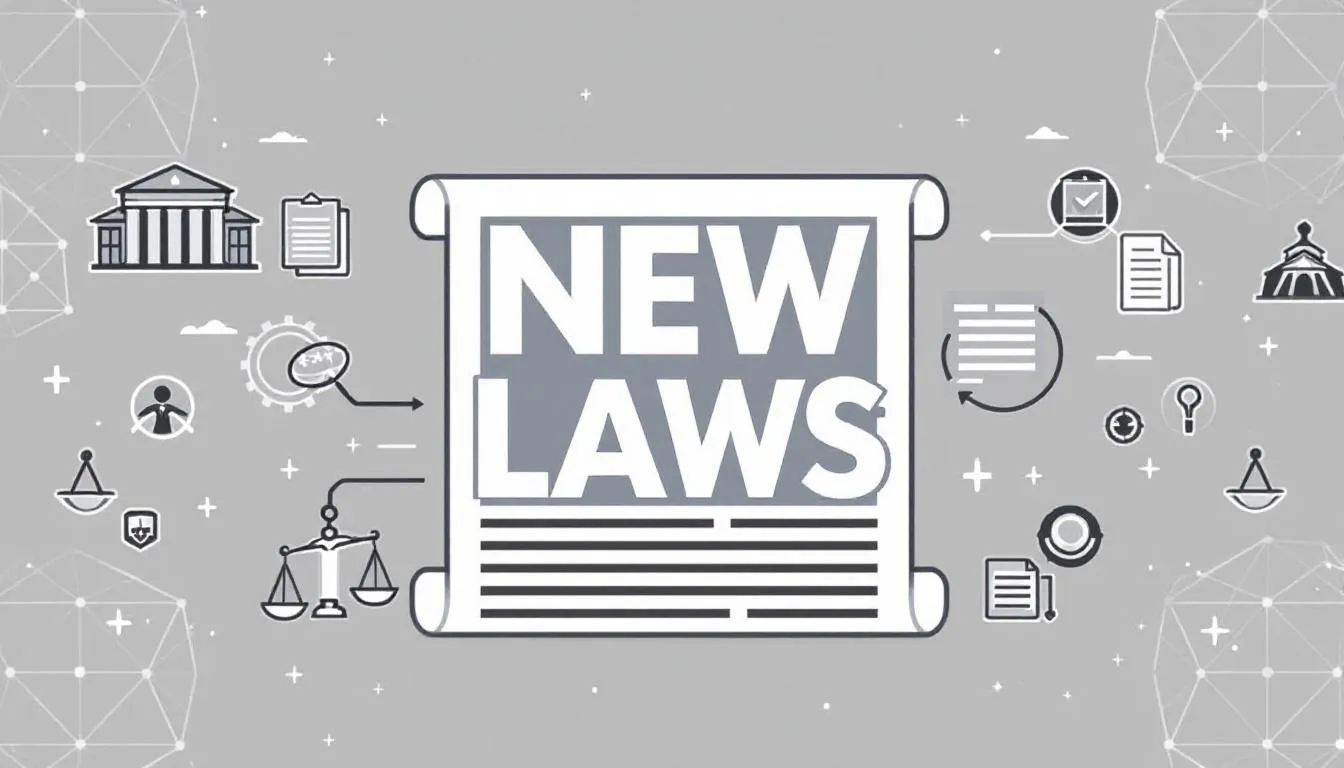Top Expungement Lawyer Durham NC: Clean Your Criminal Record
Need to clear your criminal record in Durham, NC? An expungement lawyer Durham NC can guide you through the process to remove charges or convictions from your record. In this article, learn about what expungement means, who qualifies, and how a dedicated lawyer can help you achieve a clean slate. Sandhu Law PLLC is dedicated to helping real people facing criminal charges in Durham, Chapel Hill, and surrounding areas.
Need an experienced expungement lawyer in Durham, NC? Contact Sandhu Law PLLC at (919) 491-8650 or reach out online for a free consultation. Our professional office is committed to providing personalized legal service. Our dedicated legal team specializes in expungement cases and will expertly guide you through every step of the expungement process to help clear your criminal record and secure a fresh start.
Key Takeaways
Expungement in North Carolina allows individuals to clear their criminal records, offering a fresh start and improving opportunities in employment and education.
Eligibility for expungement includes specific criteria such as waiting periods and the nature of offenses, with recent legislative changes making the process more accessible.
Choosing a qualified expungement lawyer, such as those at Sandhu Law PLLC, provides personalized legal assistance and increases the likelihood of successful expungement outcomes.
Understanding Expungement in North Carolina

Expungement is a powerful legal remedy that allows individuals to clear their criminal records, providing a much-needed fresh start. North Carolina recognizes the value of helping individuals start anew by making the expungement process accessible to those who qualify. Expungement is especially important for those who have been accused or have faced charges, as it helps them move forward without the burden of a criminal record. However, navigating the legal complexities of expungement can be daunting, making it crucial to consult with a skilled criminal defense lawyer to ensure accurate filing and a smooth process.
The expungement process is designed to erase public records of charges or convictions, making them invisible to background checks and public scrutiny. This can be life-changing for those who have faced charges or have a criminal history, as it removes the stigma associated with past convictions and opens up new opportunities for employment, education, and personal relationships.
Understanding the basics of expungement and its importance is the first step. The following sections explore what expungement entails and its importance for those looking to rebuild their lives.
What is Expungement?
Expungement is a legal process. It involves removing criminal history from public records. In North Carolina, an expungement erases public records of charges or convictions, effectively giving individuals a clean slate. This means that once an expungement is granted, individuals do not have to disclose the expunged offense to potential employers, landlords, or educational institutions. Under North Carolina law, individuals cannot be held liable for making a false statement or be found guilty of perjury for failing to acknowledge or disclose expunged records.
Even in cases where a criminal charge is dismissed, the arrest record remains visible, potentially leading to misunderstandings and lost opportunities. Expungement allows individuals to erase these records from public visibility, ensuring they are not unfairly judged by past mistakes. Cases that are ultimately dismissed, whether before or after a trial, may be eligible for expungement. Expungement can also apply to records resulting from a trial that ends in a not guilty verdict or dismissal.
Importance of Expungement
A criminal record can significantly impact various aspects of life, including employment opportunities, education, and personal relationships. Convictions can have damaging long-term effects on an individual's future. Expungement is important as it helps individuals with criminal records improve their chances of accessing these opportunities and getting back on their feet.
Expunged records prevent the disclosure of past offenses, which can positively influence potential employers' perceptions. Having a clean record can enhance an individual's ability to obtain professional licenses in various fields. This is particularly important in competitive job markets where a criminal record can be a significant hurdle.
Moreover, clearing juvenile records can help eliminate barriers to educational opportunities and support personal development. By removing these barriers, individuals can pursue their goals without the stigma of a past criminal record hanging over them.
Eligibility Criteria for Expungement in North Carolina

Knowing the eligibility criteria for expungement in North Carolina is crucial for anyone looking to clear their criminal record. Under North Carolina law, individuals are eligible for one expungement per lifetime for crimes resulting in a dismissal or not guilty verdict. The Second Chance Act, effective December 1, 2020, broadened the qualifications for expungement, the types of crimes eligible, and the number of expungements one can apply for.
The 2017 changes to expungement laws significantly reduced the waiting periods for expungement of certain nonviolent misdemeanors and felonies. In North Carolina, expungement can be obtained through a court order. This process requires meeting specific state expungement requirements. It's crucial to understand these eligibility criteria to ensure a comprehensive expungement application.
Examples of offenses that may be eligible for expungement include possession, assault, and alcohol-related offenses, while certain serious offenses such as deliver cocaine are typically not eligible for expungement.
Recent laws permit unlimited dismissal expungements. This is applicable for individuals who meet the eligibility criteria. After expungement, a person's failure to disclose expunged entries cannot be held against them. Under North Carolina law, a person's failure to acknowledge expunged records does not result in legal penalties. Next, we'll discuss the types of offenses that qualify for expungement and the waiting periods involved.
Types of Offenses Eligible for Expungement
In North Carolina, non violent felonies over 10 years old can be expunged, provided it is the first offense. Nonviolent misdemeanors that are at least 5 years old and classified as first offenses are also eligible for expungement. Clearing a criminal record can significantly enhance a person's ability to secure employment and attain educational opportunities.
However, it is important to note that DWI/DUI convictions are not expungeable in North Carolina as of December 1, 2015. Clearing these eligible offenses can open doors that were previously shut due to a criminal record.
Waiting Periods for Expungement
Individuals with one nonviolent misdemeanor conviction can apply for expungement after a waiting period of five years. For those with multiple nonviolent misdemeanors, a waiting period of seven years after completing their sentence applies before they can file for expungement. The waiting period for expungement begins only after the completion of any active sentence, probation, or post release supervision.
A waiting period of 20 years is required for expungement applications involving two or three nonviolent felony convictions. Individuals under 22 seeking to expunge certain drug convictions must wait at least 12 months after the conviction.
Individuals in North Carolina must follow mandatory waiting periods based on their offense type.
Multiple Offenses and Expungement
Individuals can now have multiple dismissals expunged at once, which was not previously allowed. Having multiple offenses can complicate eligibility for expungement under North Carolina law. This change significantly benefits individuals with multiple nonviolent offenses, allowing them a greater chance to clear their records.
Knowing the nuances of eligibility helps individuals in determining their expungement options effectively. This is particularly relevant for those with multiple charges over their lifetime.
The Expungement Process in Durham, NC

The expungement process in Durham involves several steps, starting with filing a petition in the court where the conviction occurred. This is a critical step and must be done accurately to avoid delays or rejections. The process also requires undergoing a criminal background check to verify the eligibility of the offenses for expungement.
The administrative office of the courts plays a key role in managing and automating records related to expungements, dismissals, and not guilty verdicts, ensuring compliance with North Carolina laws.
All four counties (Durham, Orange, Chatham, Wake) in North Carolina are eCourts jurisdictions, requiring attorneys to eFile. This ensures that the filing process is streamlined and efficient.
The following section details the specific steps involved in filing for expungement and the court's expunction process review process.
Filing for Expungement
To have a record expunged in North Carolina, individuals must:
File a petition in the court where the conviction occurred.
Submit a petition as part of the initial steps in the expungement process.
Undergo a criminal background check.
Additionally, the timing of filing is crucial when multiple offenses are involved, as it affects eligibility for expungement.
All four counties in North Carolina that are eCourts jurisdictions, requiring attorneys to eFile, are:
Durham
Orange
Chatham
Wake This ensures that the filing process is efficient and reduces the chances of errors that could delay the process.
Court Review and Decision
The district attorney has a limited timeframe of 30 days to file an objection to an expungement petition. The court plays a critical role in the expungement process, reviewing petitions to determine if they meet the legal criteria for expungement. If the district attorney files an objection, the court will consider this input alongside the petition before making a final decision on the expungement request.
The court's review process is thorough and ensures that only eligible petitions are granted expungement. This step is crucial in maintaining the integrity of the expungement process and ensuring that justice is served.
Post-Expungement Steps
After an expungement is granted, it is important to update background check services to reflect the cleared record. Expunged records are removed from the public record and are no longer accessible to the general public. This ensures that the expunged entries are no longer visible in public records. If the expungement is granted, all law enforcement agencies will seal the records.
Taking these post-expungement steps is essential to fully benefit from the expungement process and ensure that the cleared record is accurately reflected in all relevant databases.
Juvenile Record Expungement

Juvenile record expungement has its own set of criteria and benefits. Juveniles seeking expungement must meet specific eligibility requirements based on the nature of the offense and the age of the individual at the time of the offense. Expunging a juvenile record can significantly improve an individual's future educational and employment opportunities, allowing them to move forward without the stigma of a past offense.
Knowing these certain criteria and the benefits of juvenile expungement is vital for young individuals aiming to improve their prospects and move forward.
Criteria for Juvenile Expungement
Juveniles seeking expungement of nonviolent felony convictions must have no prior or subsequent convictions, excluding traffic violations, and must complete 100 hours of community service and earn a high school diploma or GED. Knowing the eligibility requirements for juvenile expungement is essential for those seeking to enhance their future opportunities after being convicted of a conviction.
These eligibility requirements are designed to encourage rehabilitation and support juveniles in their journey towards a crime-free life. Individuals seeking more information or assistance with the expungement process can reach out to legal experts for guidance on the next steps.
Benefits of Juvenile Expungement
Clearing juvenile records can open doors to higher education institutions that might otherwise deny admission due to a criminal record. Individuals with expunged records have a better chance of securing employment, as employers are less likely to view their past negatively.
Expungement can provide a fresh start, allowing individuals to pursue their goals without the stigma of a past criminal record and offering second chances. This is especially important for young individuals looking to build a successful future.
Recent Changes to North Carolina Expungement Laws

Recent legislative changes have significantly streamlined the expungement process in North Carolina, making it easier for individuals to clear their criminal records. These changes have enhanced opportunities for those with criminal records, allowing them to reintegrate more smoothly into society. One of the most notable updates is the introduction of automatic expunctions, which allows certain charges to be expunged automatically without requiring a petition from the individual.
These changes are a testament to North Carolina's commitment to helping individuals rebuild their lives and move forward without the burden of a criminal record. The 2017 legislative updates and the introduction of automatic expunctions have made the expungement process more accessible and efficient.
2017 Legislative Updates
The 2017 legislative updates brought significant changes to expungement laws in North Carolina. For nonviolent misdemeanors, the waiting period for expungement decreased from 15 years to 5 years. Similarly, expungements for nonviolent felonies can now be applied for after 10 years, down from 15 years.
Additionally, the updates allow individuals to expunge dismissals or not guilty verdicts without a waiting period. These changes have made it easier for individuals to clear their records and move forward with their lives.
Automatic Expunctions
Starting December 1, 2021:
Certain dismissals and not-guilty verdicts are automatically sealed without needing to file for expunction, including record sealing.
The expanded limit for expunctions of dismissals allows multiple dismissals to be eligible for automatic expunction.
Not guilty verdicts are now eligible for expunction under new laws.
Individuals can receive an expunction for a dismissal even if they have past misdemeanor convictions in the same case. There is no time restriction for when the offenses must have occurred for dismissals to be expunged.
Automatic expunctions of dismissals and not-guilty findings have resumed statewide in North Carolina.
Why Choose Sandhu Law PLLC for Your Expungement Case
Choosing the right legal representation is crucial when navigating the expungement process. Sandhu Law PLLC provides comprehensive support for individuals throughout the expungement process in North Carolina. The firm is known for its commitment to protecting clients' reputations and helping them rebuild their lives after criminal charges.
Individuals interested in expungement should reach out to an experienced lawyer who can guide them through the process. Sandhu Law PLLC stands out for its expertise, personalized legal assistance, and high success rate.
Expertise and Experience
Attorney Navi Sandhu has over a decade of hands-on experience in criminal defense. Sandhu Law has over a decade of experience in North Carolina courts. The primary focus of Sandhu Law is safeguarding clients' rights throughout the criminal justice process.
Navi Sandhu was born and raised in North Carolina, understanding local values and the nuances of practicing law in the area as a person. His key practice groups include:
Criminal defense
DUI/DWI/BUI
Traffic law
Personal injury
Car accidents
Mediation.
Personalized Legal Assistance
Sandhu Law treats each client as an individual and develops a personalized strategy based on their unique circumstances. Each client receives a unique strategy tailored to their specific expungement needs. The firm creates customized legal strategies that cater specifically to the individual needs of each client.
Attorney Navi Sandhu fight for his clients as if he is fighting for his own family, ensuring they receive justice and fair treatment. Sandhu Law is committed to protecting clients' driving or boating privileges and helping them find the best path forward.
Attorney Navi Sandhu practices in Durham, Orange, Chatham, and Wake Counties.
High Success Rate
The firm boasts a high rate of successful expungement outcomes, reflecting their commitment to client satisfaction. The firm also showcases a significant number of successful expungement cases, demonstrating its effectiveness in achieving favorable outcomes. The firm's success in expungement cases greatly enhances the prospects for potential clients seeking to clear their records.
Overall, the firm's high success rate in achieving expungements contributes to positive client feedback and reinforces their reputation as a top-notch legal service provider.
How to Get Started with Sandhu Law PLLC
Potential clients can begin their expungement process by reaching out directly to Sandhu Law PLLC for guidance. The firm offers a straightforward and supportive approach to help individuals navigate the expungement process and achieve their goals.
Taking the first step towards clearing your criminal record is as simple as contacting Sandhu Law PLLC. The firm provides all the necessary resources and support to help you get started on the path to a fresh start.
Free Consultation
Sandhu Law PLLC offers complimentary consultations to discuss a potential client's eligibility for expungement. Taking advantage of a free consultation allows potential clients to discuss their cases without any financial commitment.
Potential clients are encouraged to schedule a consultation to benefit from expert guidance in navigating the expungement process. This initial step can provide clarity and direction, making the legal journey less daunting.
Contact Information
For assistance, clients can reach Navi Sandhu directly at (919) 491-8650 or reach out online. Having clear contact information is essential for clients who need expungement services and wish to reach out for assistance.
Sandhu Law PLLC's phone number is (919) 491-8650, ensuring clients can easily reach out for help. Don't hesitate to contact Navi Sandhu for any questions or to schedule your free consultation.
Summary
Expungement in North Carolina offers a valuable opportunity to clear criminal records and start anew. Navigating the expungement process can be complex, but with the right legal representation, such as Sandhu Law PLLC, individuals can successfully clear their records and move forward with their lives.
Understanding the eligibility criteria, the expungement process, and recent legislative changes are crucial steps. By taking advantage of the free consultation offered by Sandhu Law PLLC, you can take the first step towards a brighter future. Remember, a clean slate is just a phone call away.
Frequently Asked Questions
What is the expungement process in North Carolina?
The expungement process in North Carolina requires you to file a petition in the relevant court, undergo a criminal background check, and then wait for the court to review and decide on your application. This process ensures that individuals can move forward with a clearer legal record.
Who is eligible for expungement in North Carolina?
In North Carolina, individuals may be eligible for expungement based on the type of offense, waiting periods, and prior convictions. Specific criteria also exist for juveniles and those with nonviolent misdemeanors or felonies.
How long does the expungement process take?
The expungement process can take several months when initiated by petition, whereas automatic expunctions adhere to a predetermined statutory timeline.
What are the benefits of expungement?
Expungement enhances employment and educational opportunities, helps eliminate the stigma of past convictions, and facilitates the attainment of professional licenses. Therefore, it plays a crucial role in reintegrating individuals into society.
How can I get started with Sandhu Law PLLC for my expungement case?
To get started with Sandhu Law PLLC for your expungement case, simply call (919) 491-8650 or reach out online to schedule a free consultation. They are prepared to offer guidance and support throughout your expungement process.